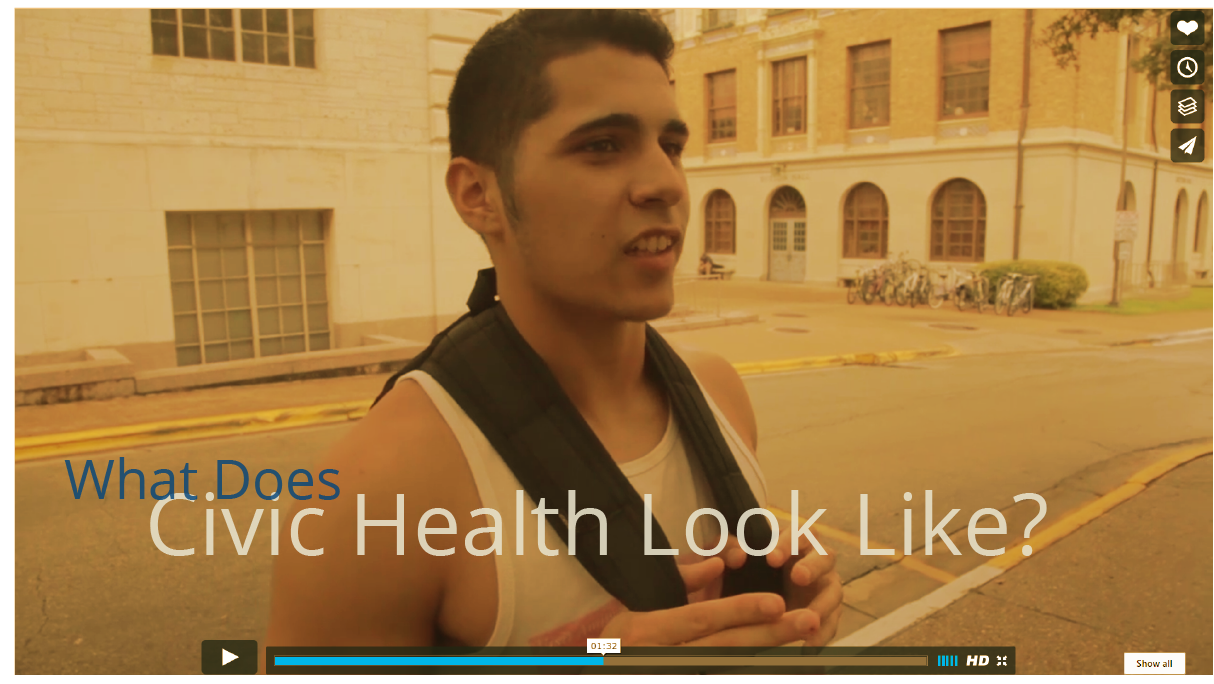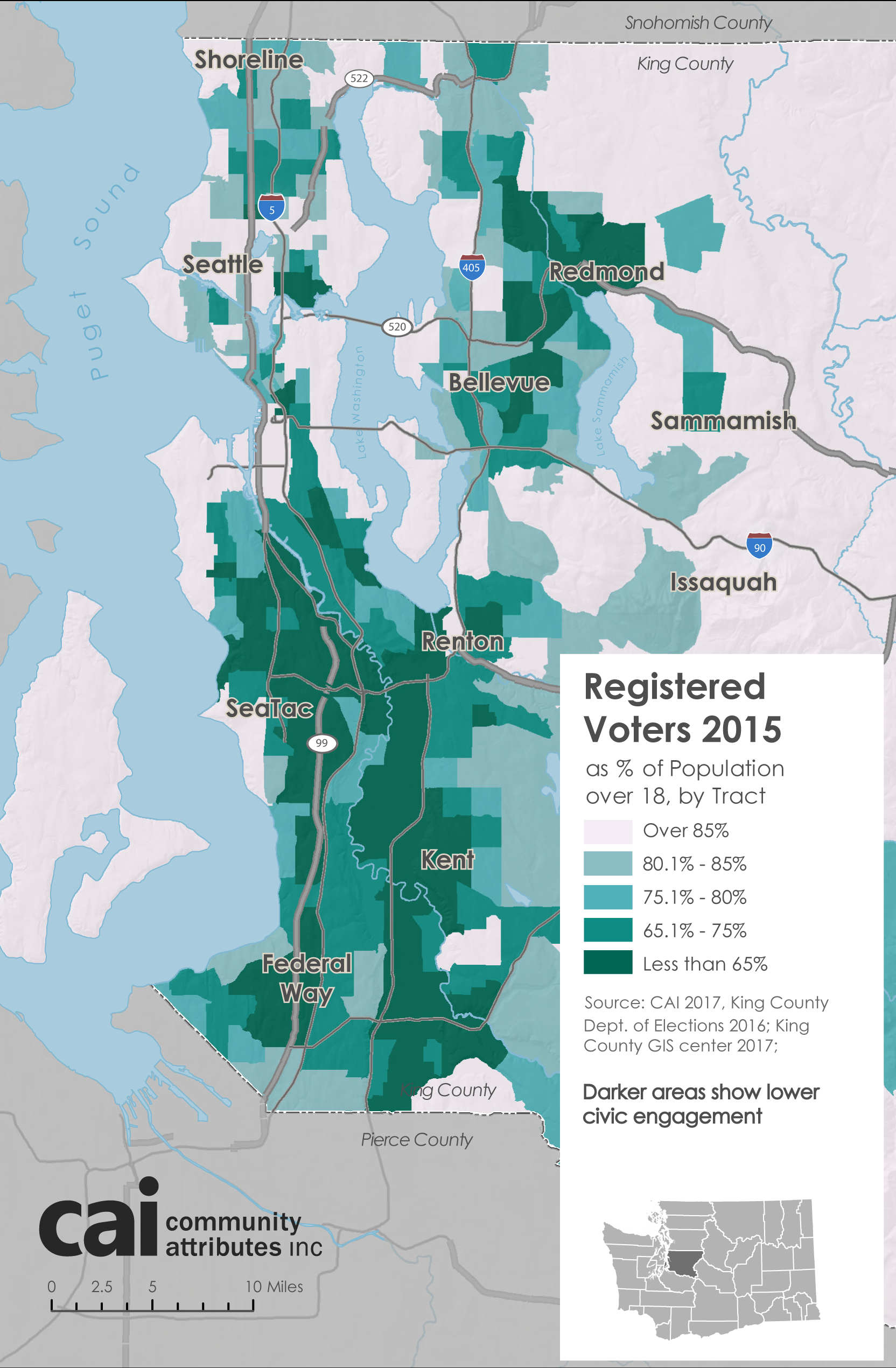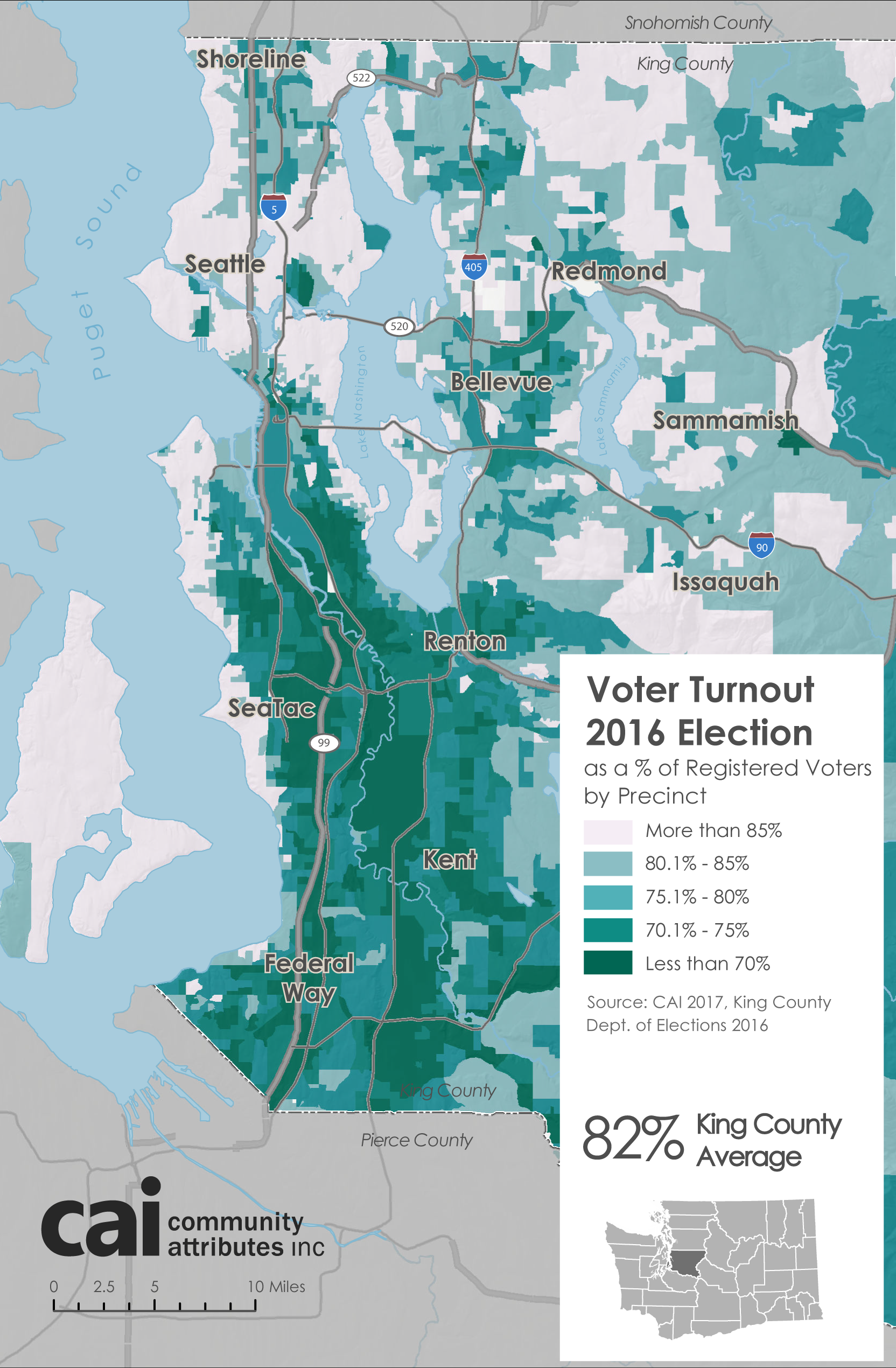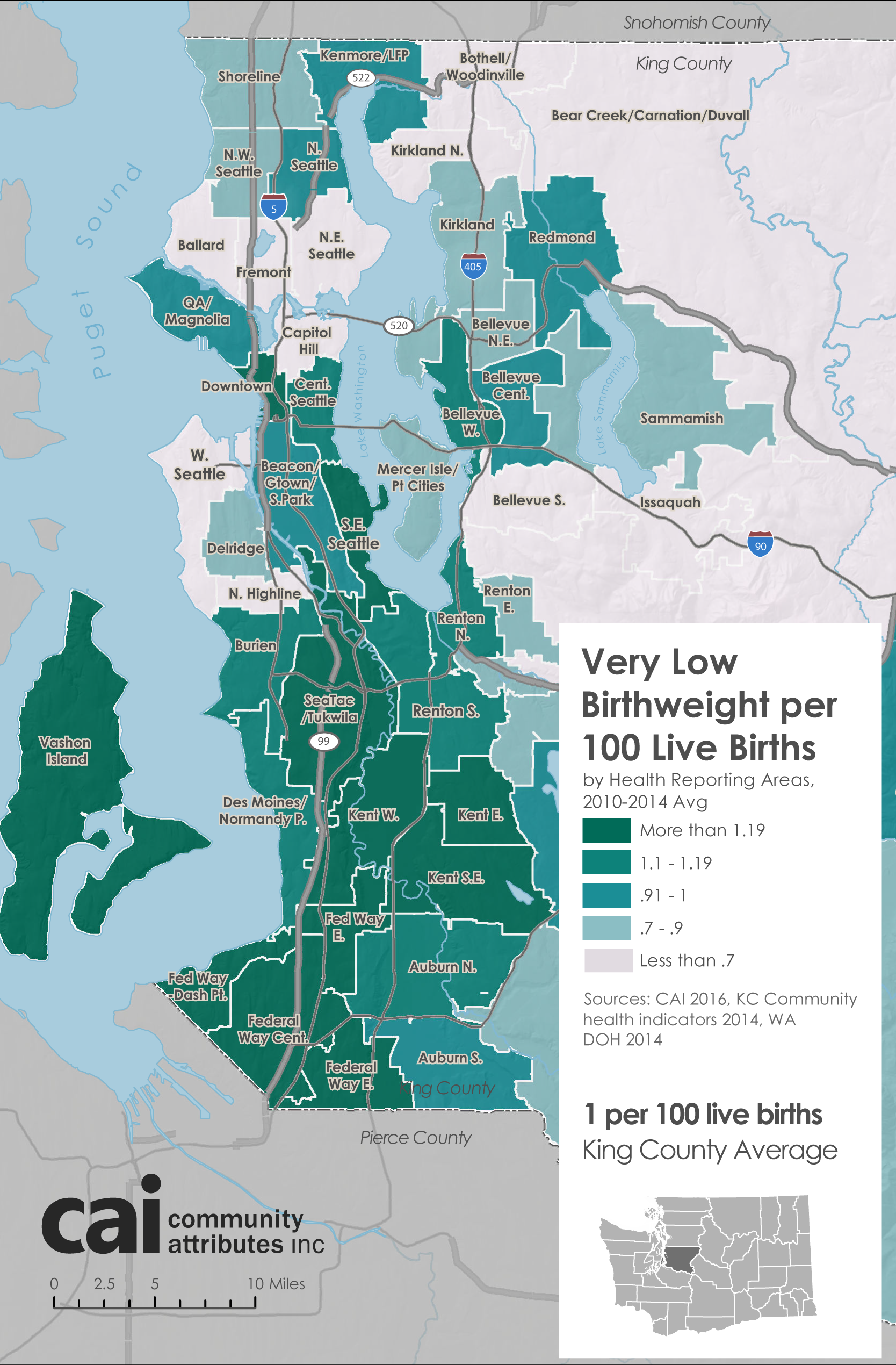This is our community
The Greater Seattle Civic Health Index
We believe that people want and need to have a say in the issues that impact their lives. We know that a healthy democracy and a strong community depend on informed, engaged and powerful citizens. When it comes to civic strength, Greater Seattle is one of the healthiest cities in America. But a more complicated reality lies beneath that headline: There are great disparities in our community’s civic participation corresponding to disparities in education, income, race, and physical health. This website explores greater Seattle’s civic health and offers recommendations for you—for all of us—to improve it.
What’s civic health?
Civic health is the strength within a community to work together to tackle collective problems. It’s having places—parks, public squares, museums—and times—holidays, elections, football games—where we connect with one another. It’s having means to express our values and voices and being informed and open to others’ priorities and experiences. It’s partnering with and redressing our government. It’s power and mutual responsibility.
Why is civic health important?
Strong civic health positively affects all of us as individuals, and impacts our career prospects, our physical well being, and our relationships with neighbors. It also affects our community’s resilience and prosperity.
This website reports Greater Seattle’s civic health: its strengths and weaknesses, changes over time, demographic disparities and comparisons to other cities. There’s data, analysis, stories and recommendations for improvement.
And because civic health is ever evolving and communal, we warmly invite you to add your ideas, stories and recommendations. Not only will your contribution enhance this report, it will simultaneously build our civic strength!
The Greater Seattle Civic Health Index is reported and hosted by Seattle CityClub, a non-partisan organization that informs, connects and inspires citizens to action, in collaboration with the National Conference on Citizenship. It’s assembled with the sponsorship and input of national and regional organizations and advisers.
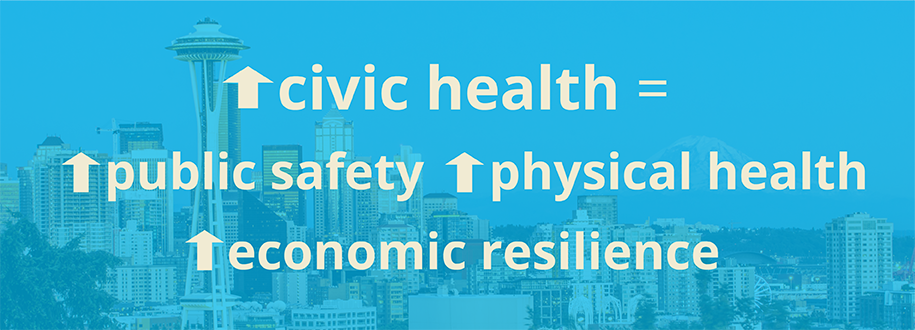
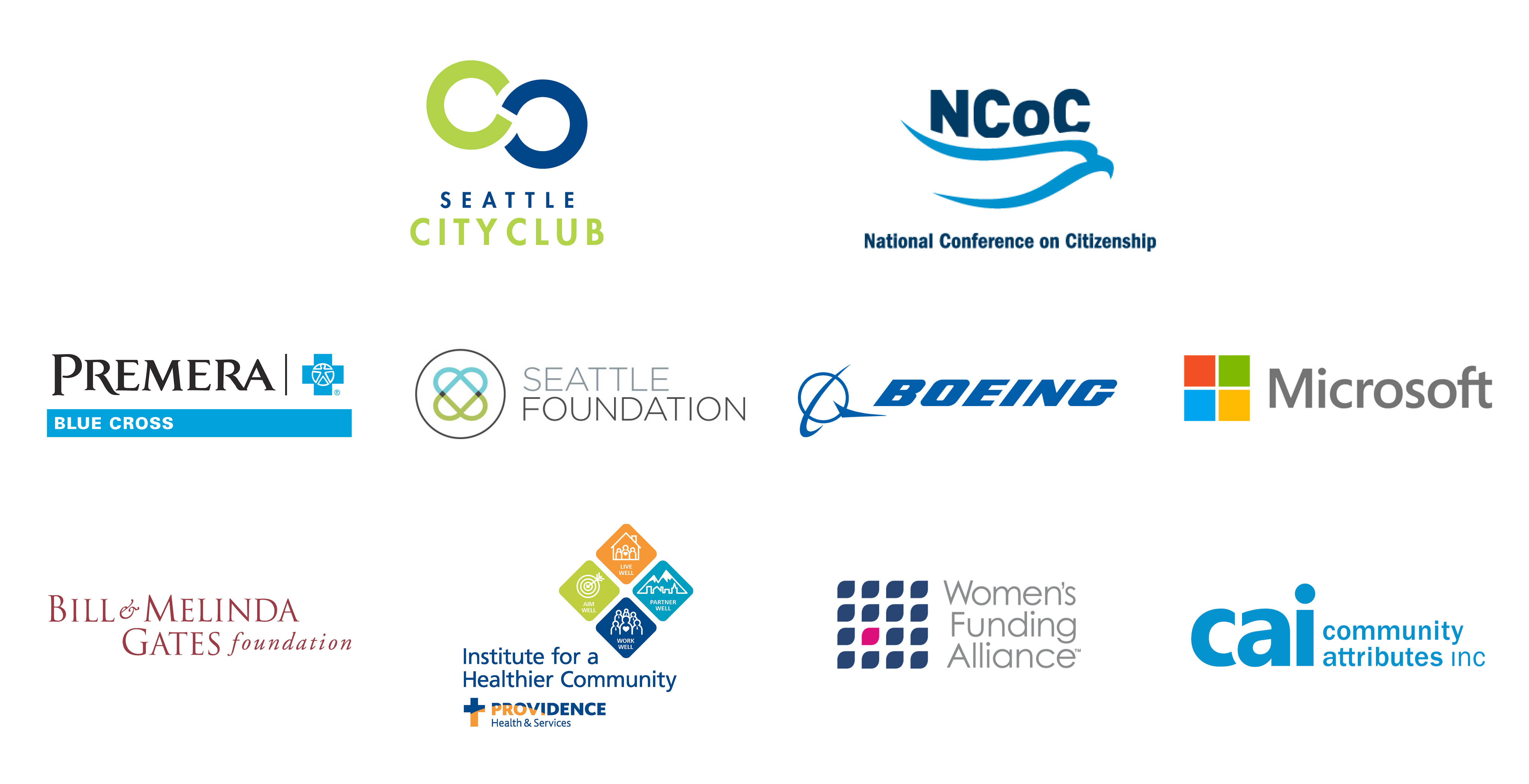
List of Advisers
Gina Breukelman
Jacques Colon
Bao-Tram Do
Diane Douglas
Stephanie Farquhar
Scott Forslund
Howie Frumkin
Chelsea Glaser
Marcus Green
Audrey Haberman
Anne Martens
Chris Mefford
Aaron Robertson
Rebecca Soldana
Matias Valenzuela
Liz Vivian
Victoria Woodards
The Boeing Company NW Region, Health and Human Services
Tacoma/Pierce County Department of Health
APACEvotes
Seattle CityClub
Seattle/King County Public Health
Providence Institute for a Healthier Community
UW School of Public Health
Co-founder, Thriving Communities Network
South Seattle Emerald
Philanthropy Northwest
Bill & Melinda Gates Fndn, U.S. Policy, Advocacy, Comm.
Community Attributes Inc.
Seattle Foundation, Community Programs
Washington State Senate
King County Office of Equity and Social Justice
Women’s Funding Alliance
Tacoma Urban League and Tacoma City Council
| Gina Breukelman | The Boeing Company NW Region, Health and Human Services | |
| Jacques Colon | Tacoma/Pierce County Department of Health | |
| Bao-Tram Do | APACEvotes | |
| Diane Douglas | Seattle CityClub | |
| Stephanie Farquhar | Seattle/King County Public Health | |
| Scott Forslund | Providence Institute for a Healthier Community | |
| Howie Frumkin | UW School of Public Health | |
| Chelsea Glaser | Co-founder, Thriving Communities Network | |
| Marcus Green | South Seattle Emerald | |
| Audrey Haberman | Philanthropy Northwest | |
| Anne Martens | Bill & Melinda Gates Fndn, U.S. Policy, Advocacy, Comm. | |
| Chris Mefford | Community Attributes Inc. | |
| Aaron Robertson | Seattle Foundation, Community Programs | |
| Rebecca Soldana | Washington State Senate | |
| Matias Valenzuela | King County Office of Equity and Social Justice | |
| Liz Vivian | Women’s Funding Alliance | |
| Victoria Woodards | Tacoma Urban League and Tacoma City Council |
Thanks to University of Washington interns Sarah Bollard and Kaiyan Zhang for research and collaboration.
How are we doing?
Overall Seattle’s civic health is excellent. In data tracked by the National Conference on Citizenship, Seattle ranks in the top ten in 19 of 26 civic categories across 51 American cities. We have strong civic institutions and a history of effective citizen activism. We’re especially good at expressing ourselves, mobilizing and organizing to effect change.
Since the last Civic Health Index report in 2014, we’ve also improved significant civic weaknesses. There is positive change in our social cohesion — the informal connections that bind communities together and create a sense of welcome and belonging. These civic health measures include engaging newcomers, interacting with neighbors and building public trust.
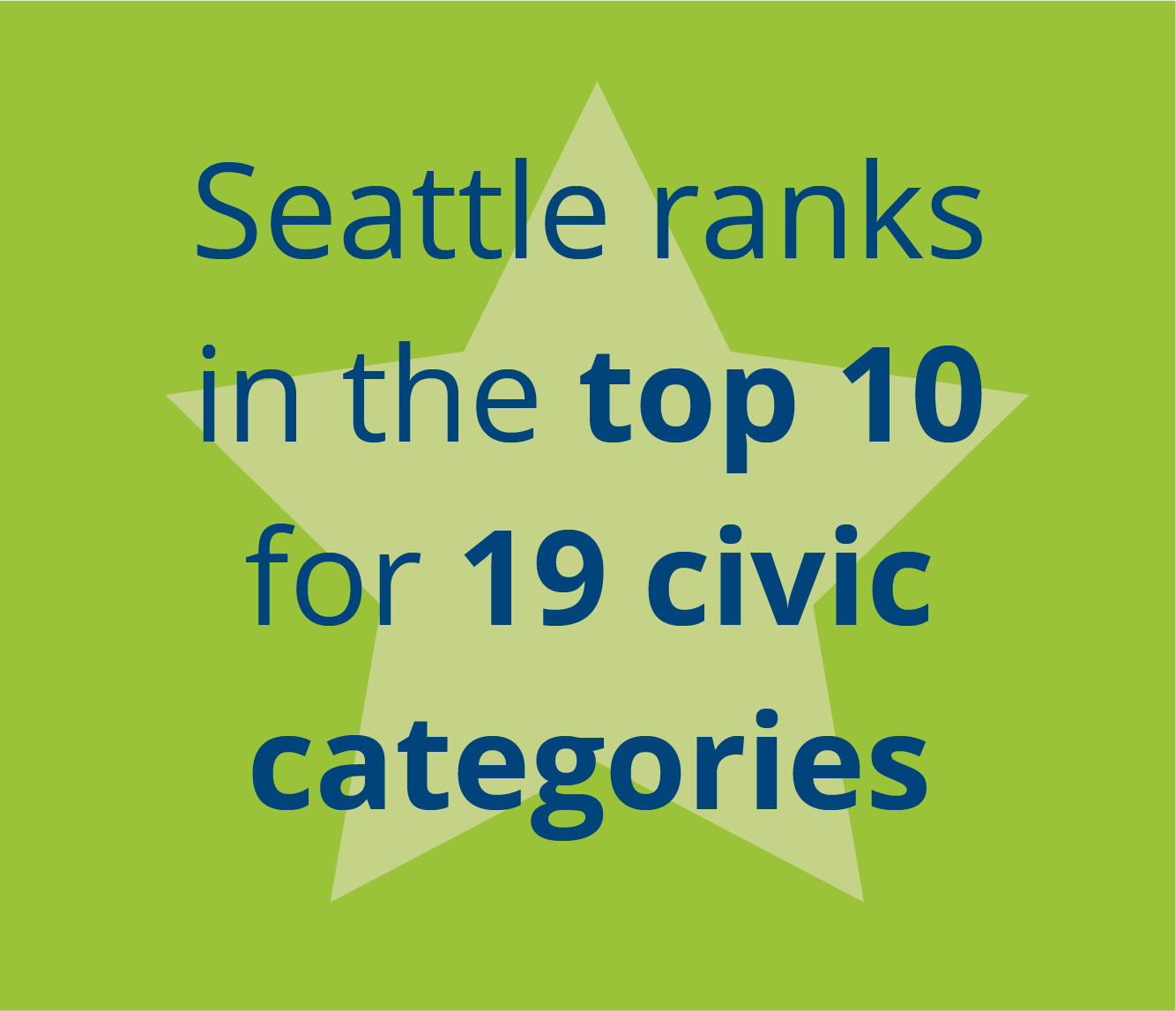
The Seattle freeze is thawing!
Our data confirm that while the “Seattle Freeze” is real—it is comparatively difficult to make new friends here, especially for transplants from other cities—we have cause for optimism — the freeze is quickly thawing!
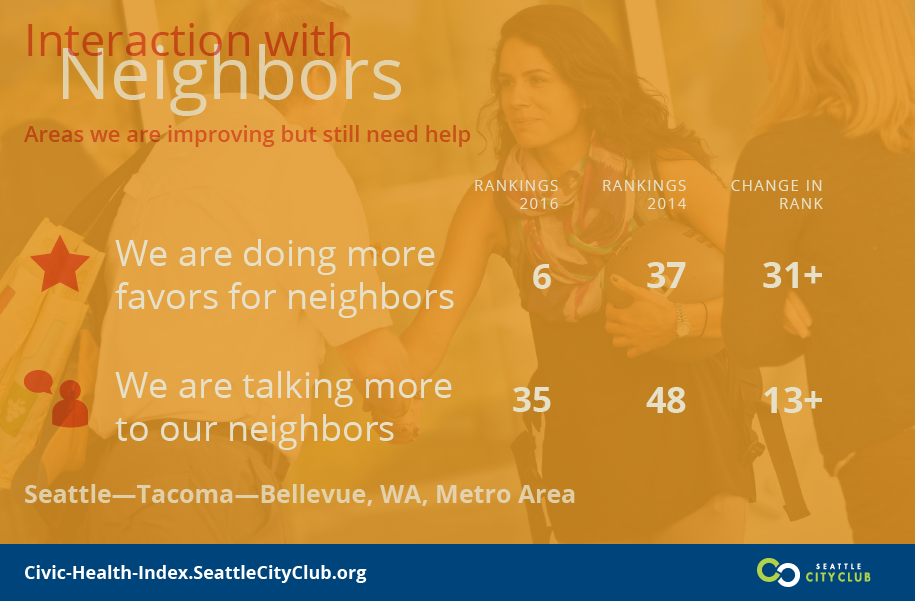
*Ranked against the 51 largest metropolitan areas
A tale of two Seattles
The topline statistics showing Greater Seattle’ civic strength should be celebrated, but they don’t tell the full story. There are significant disparities within citizen engagement, defined by who has access to leaders, who has barriers to staying informed, who is invited to join community networks.
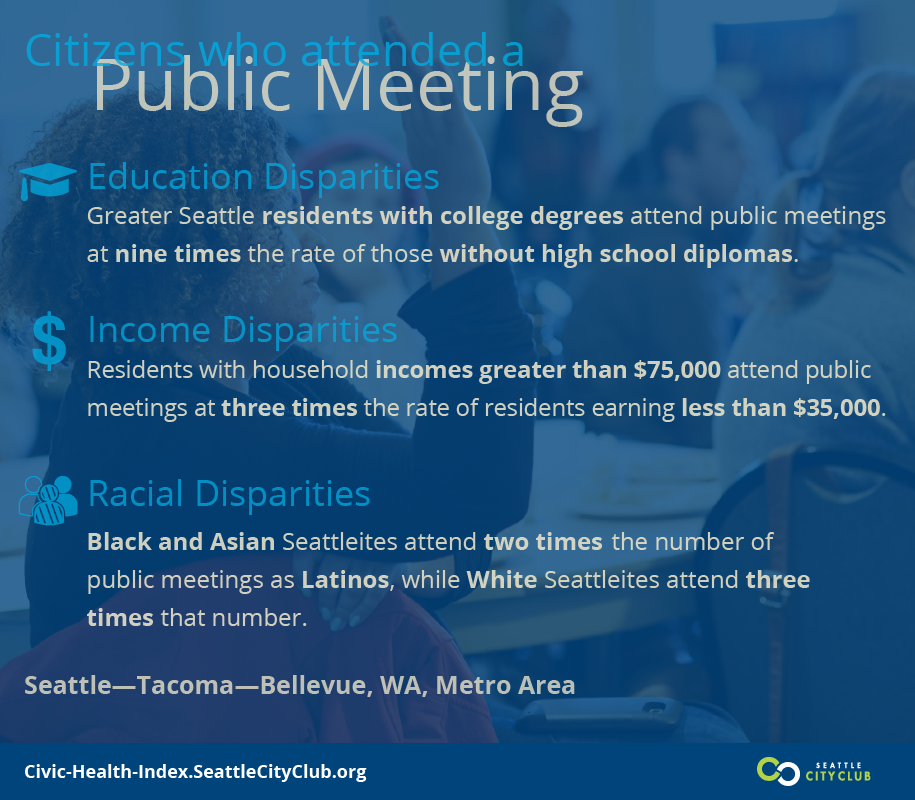
These disparities, caused by institutional racism, language barriers, discrimination, poverty, and unequal access to educational opportunities threaten our civic health and prosperity. Residents who don’t have access to leaders, civic skills or knowledge of democratic power structures to advocate for themselves and their families lack the agency they need to improve their lives. This perpetuates a civic underclass.
Residents who don’t have access to leaders, civic skills or knowledge of democratic power structures to advocate for themselves and their families lack the agency they need to improve their lives. This perpetuates a civic underclass.
This resource explains the history of racial discrimination in Seattle. A film by Shaun Scott, “The End of Old Days”.
For more information, check out:
Explore the demographic disparities in greater Seattle’s civic health
Click on the icons below and filter by indicators to change the bar chart
Source: National Conference on Citizenship analysis of the Census Current Population Survey data
What makes us healthy?
It takes more than low blood pressure, good nutrition and exercise to make us healthy. In addition to these physical attributes, good health depends on positive personal relationships, economic stability, a sense of safety, secure housing and access to social services. Together these elements make up the social determinants of health, and they affect both individuals and communities.
The Centers for Disease Control and Prevention includes these social determinants of health:
| Transportation | |
| Housing | |
 |
Access to services |
| Discrimination by social grouping (e.g., race, gender, or class) | |
| Social or environmental stressors |
The racial, economic and class disparities found in civic life appear in other social determinants of health, too. Greater Seattle residents who are less likely to vote and volunteer are also less likely to have access to good healthcare and nutrition options, good schools, parks and social services.
This is not a coincidence. Institutionalized racism, segregation, discrimination and poverty impact people’s health and the health of their families and communities through generations.
Darker Areas Indicate Locations of High Concern
The maps below show disparities in civic participation and physical and mental health in King County
Why invest in greater Seattle’s civic health?
Civic agency—believing you can make a difference in your own and others’ lives and having the know-how and resources to do it—is an essential ingredient of good health. Experts have compared the benefits of being a volunteer with the benefits of joining a gym! Like regular exercise, active civic participation reduces the risk of chronic physical and mental health problems.
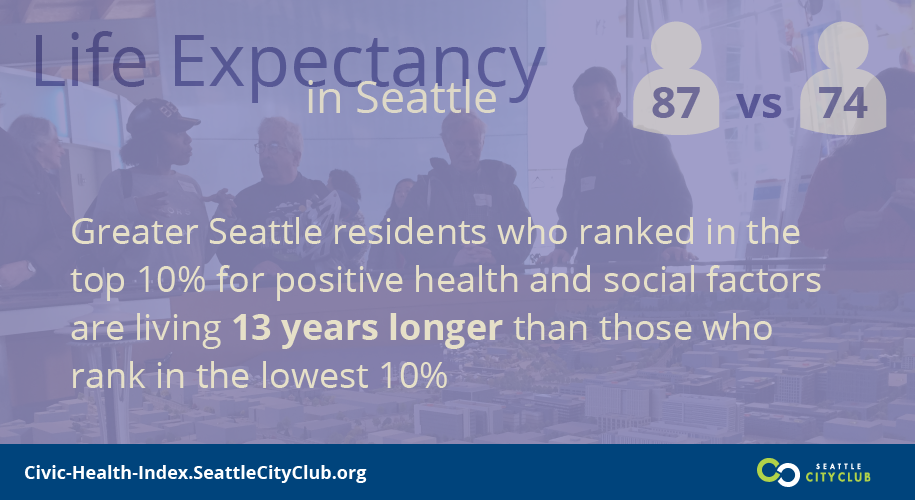
Link to source of report: http://www.whatcountsforamerica.org/truthonamap
What’s true for individuals is true for communities, too. Those with a higher percentage of active, engaged residents prosper. They’re more economically resilient. They enjoy higher levels of public safety and trust. They benefit from vibrant nonprofit organizations. Reciprocally, when communities have large numbers of disenfranchised residents, their civic vitality and prosperity suffer.
An alarming trend shows increasing gaps in the social connections and civic opportunities of American youth. Scholars demonstrate that “youth from upper/middle class backgrounds show steady or rising involvement in a wide range of institutions, including family, school, church and voluntary associations while youth from working class backgrounds are increasingly more disconnected from society and these important institutions.” (link to study)
Greater Seattle’s prosperity depends on empowering its citizens, all of its citizens. That means investing in civic education, dialogue, training, pathways, connections, institutions, meeting places. It also means redressing the disparities and inequities that hold us back.
“Seattle Foundation’s Vibrant Democracy Initiative is a partnership that strengthens the participation of underrepresented communities in the democratic process. The Foundation works with 22 grassroots organizations representing immigrant, refugee and other communities to activate their presence in civic life. Grants support leadership and partnership development and a collaboration with King County Elections aimed at voter education and support for limited English speaking communities.”
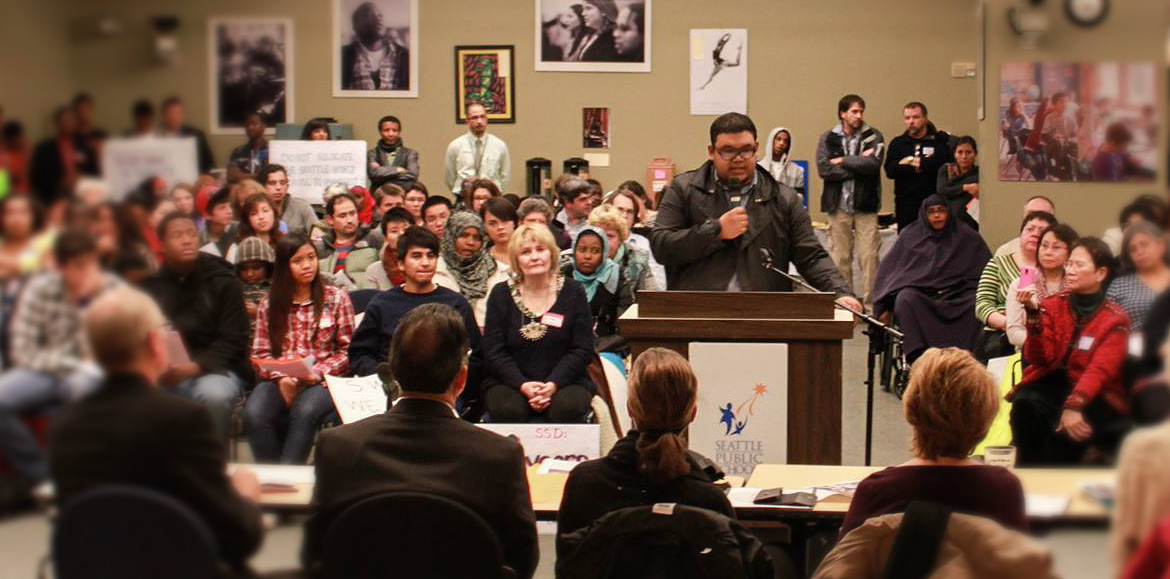
Source: Seattle Foundation’s Vibrant Democracy Initiative
Deeper Dive
Examine the current state of our civic health and how it affects the lives of individuals and greater Seattle.
![]()
Personal and Community Health
Examines neighborliness public trust, discrimination and social connections in greater Seattle and how they affect individual and communal vitality
![]()
Empowerment and Inclusion
Examines rates of voting, political expression, and organizing in greater Seattle and how they impact political and civic power
![]()
Work and Prosperity
Examines greater Seattle’s record of volunteering and philanthropy and how they engender a more committed and engaged workforce

